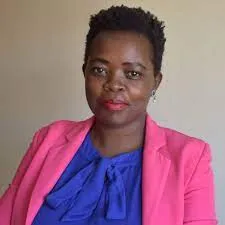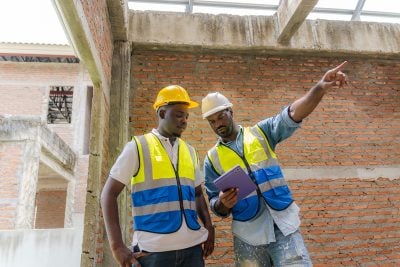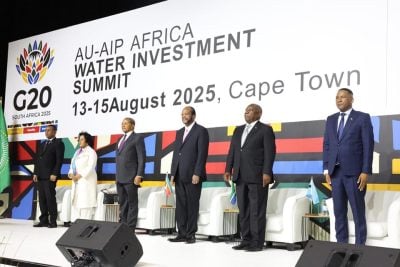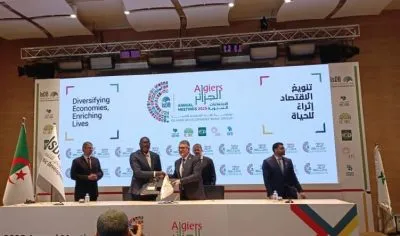This article was produced with the support of Shelter Afrique Development Bank
Mr. Hann, speaking at a symposium held on the margins of the ongoing Shelter Afrique 43rd Annual General meeting (AGM) in Kigali, Rwanda, said there is a need for resource mobilisation and sustainable financing to address the housing deficit in Africa.
Mr. Hann proposed that an alliance of African Multilateral Financial Institutions, private sector and other partners collaborate in delivering affordable housing.
Giving his remarks on the subject of catalysing investments in the Infrastructure and Built Environment industries in Africa: Reflections and call for action, Diab Karal of the Arab Bank for Economic Development in Africa (BADEA) emphasised the importance of transparency, capacity building and sustainable financing in improving social housing projects and successful housing project financing.
“Africa faces a major challenge on social housing including a lack of infrastructure and financial constraints,” said Mr Karal.
“It is important for countries to establish project preparation facilities to mitigate risks and improve project quality.”
He noted the importance of capitalisation for institutions to sustain projects in social housing.
Additionally, he said believing in private lending partnerships can help mobilise resources for development.
Oumar Sylla, Director at the regional office of the United Nations Human Settlements acknowledged challenges such as inadequate financing, regulatory bottlenecks and informal settlements on housing delivery.
He said innovative financing options and land use planning are key strategies to address these challenges.
Soleman Idd, Founder and Chairman –ADHI Africa Holding Ltd presented a novel approach to building affordable housing by leveraging technology and local resources. Arguing that traditional construction methods are too expensive and time consuming, he proposed a solution using fabricated panels, solar batteries and recycled materials, emphasising the need to reduce costs and time saving as well as potential for job creation and community engagement.
Fatou Dieye, Affordable Housing Consultant in Rwanda gave a presentation on; The Built Environment and the 2030 SDGs: The Role of the Multi Sectoral Partnerships in the Housing Environment Industry.
She said there is an urgent need for sustainable urban development in addressing urbanisation challenges, climate change, resource efficiency and social equity in Africa.
She highlighted the importance of partnerships and innovative financing for urban transformation, as well as the need for a holistic approach to sustainable industrial innovation through collaboration between stakeholders.
Ms. Fatou proposed a new approach to building density by bringing together disparate parcels and people to envision a new type of building that meets all codes and densification goals.
Kecia Rust, Executive Director of The Centre for Affordable Housing in Africa (CAHF) noted the importance of resource mobilisation for developing the built environment in municipalities and sub-nationals in Africa.
She discussed innovative initiatives aimed at improving housing delivery and financing in Africa including the need for a coordinated approach and the potential of technology and public-private partnerships.
Giving the example of Rwanda, Ms. Rust said, even the cheapest newly built houses are unaffordable for public sector workers in many countries.
“It is important to understand the value chain in delivering higher income housing, as the market may not be there to consume these properties,” she said.
“Actors across the value chain should innovate with technology, and upgrade water and sanitation for low-income households.”

 Sign in with Google
Sign in with Google 



